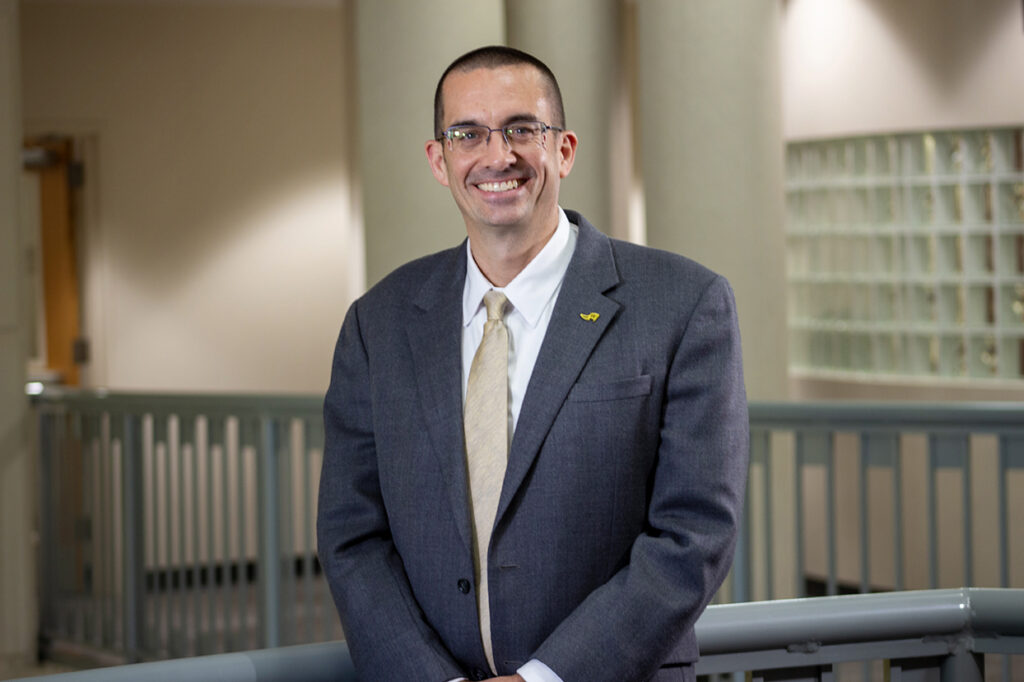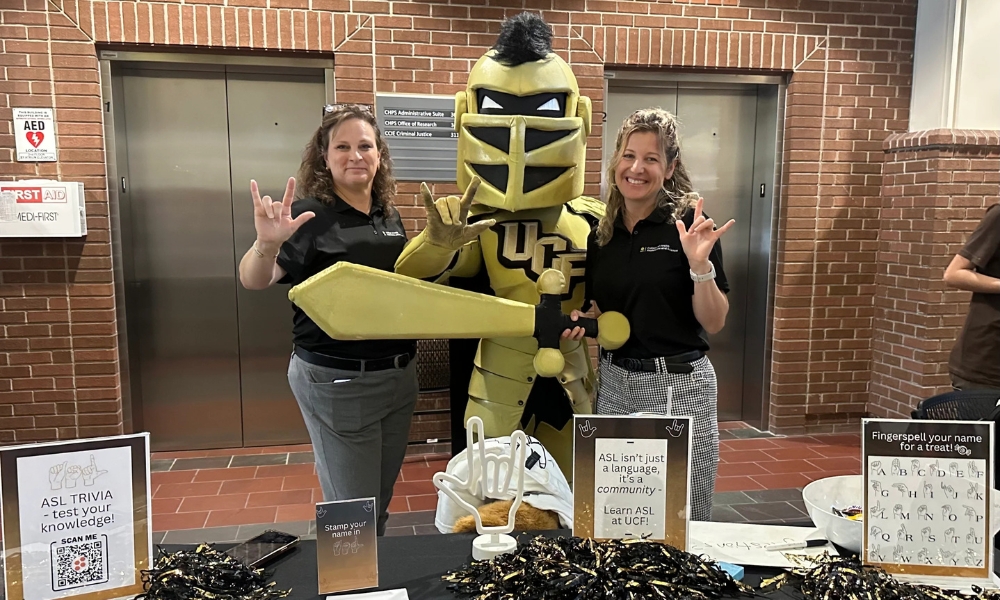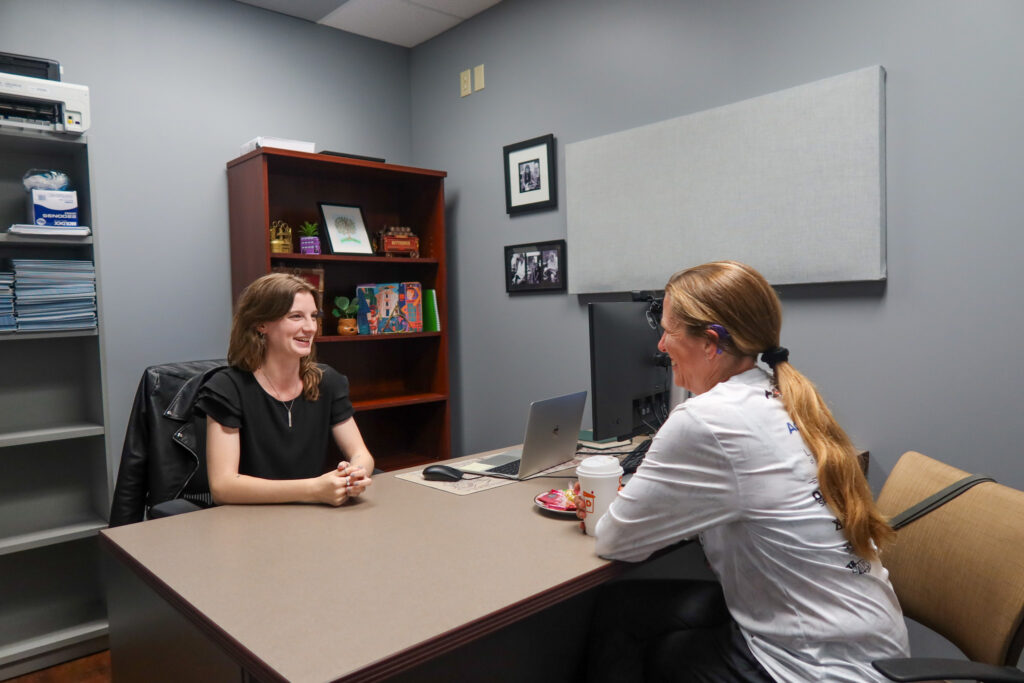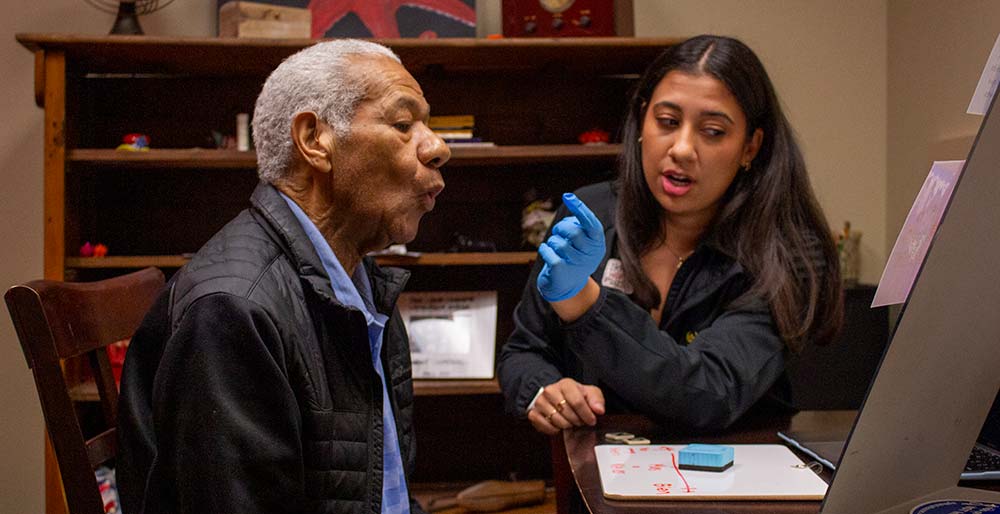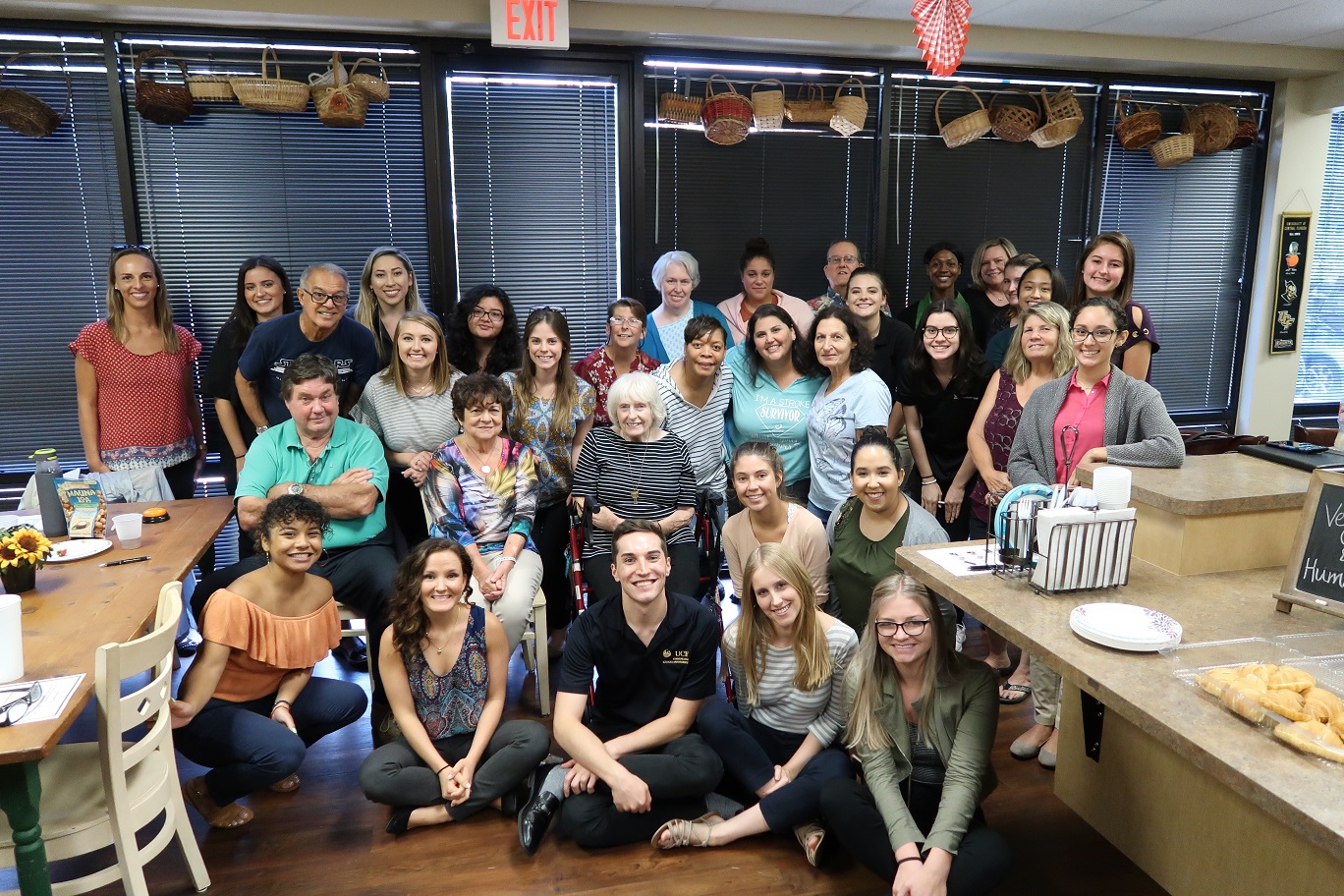
To the members of UCF’s Aphasia House’s Friday Only Club, the therapeutic meetings are more than a way to improve their reading and speaking skills. The meetings also offer a routine way for members to connect with others with aphasia, a language disorder caused by a stroke or other brain injury that affects a person’s ability to communicate.
All Friday Only Club members are graduates of Aphasia House’s intensive therapy program started by its founder and former director Janet Whiteside.
On Fridays, they continue to practice their language skills in Aphasia House’s cozy kitchen and other themed rooms with the assistance of UCF graduate students in speech-language pathology. They discuss current events and share meals and milestones.
Club Members Form Aphasia Family
“Friday Only Club is a wonderful transition program for those needing a bridge from traditional therapy to living well with aphasia,” said Amy Engelhoven, director of Aphasia House. “But our clients are eager to raise awareness about aphasia, and Aphasia Family will allow them the ability to do that.”
To the uninitiated eye, the friendly, smiling group that has been together for about seven years looks like a family. It was only natural to make it official.
The newly formed Aphasia Family includes former members of the Friday Only Club and members of UCF Adaptive Community, a recreational program for individuals with neurological disorders, Engelhoven said.
The inaugural Aphasia Family cohort had its first meeting last month. The newly minted members will continue to work with UCF student volunteers, some of whom are majoring in communication sciences and disorders, but all students are welcome.
However, instead of measuring clinical outcomes, the students will assist the members with the things they choose to work on, whether it’s reading newspaper articles out loud and discussing the topic, working on art and music projects or planning outreach activities.
Ginny Shipman, one of Engelhoven’s graduate students, helped develop the project as part of an independent study.
“Our Friday Only Club ‘graduates’ developed Aphasia Family themselves,” Shipman said. “They have clear ideas about how they want the group to look. They want it to be service-oriented. They also want to advocate for themselves, raise community awareness about aphasia and do fun group activities.”
Aphasia Family Collaborates with UCF Adaptive Community
Megan Sherod, a neuropsychologist and clinical associate professor in psychology, began UCF Adaptive Community shortly after coming to UCF in 2016.
UCF Adaptive Community’s members include individuals with aphasia and others who have experienced a Traumatic Brain Injury.
“The goal of UCF Adaptive Community is to allow individuals with acquired physical and cognitive disabilities to maximize their quality of life,” Sherod said. “It’s not therapy, it’s activity.”
Using the Center for Disease Control and Prevention data, Sherod estimates that, since 2013, “There are more than 17,000 individuals in our four-county community who have sustained a severe TBI who could utilize services like the ones provided by our programs.”
Sherod also is the facilitator of “Feeling Aphasia,” a therapeutic support group for people with acquired communication disorders.
Acting, Singing and Living with Aphasia
Sherod worked with Engelhoven and some of the Friday Only Club members earlier this year as part of UCF Celebrates the Arts at the Dr. Phillips Center for the Performing Arts in Orlando. The April event included a community theatre performance with dramatic readings of the stories of Friday Only Club members.
“Each person with aphasia has a lifetime of memories bursting to get out,” said Sherod, who has a music background. “It is up to us to take the time to listen. We owe it to them to hear their stories.”
Belinda Boyd, a UCF associate professor and undergraduate acting coordinator, assisted with the dramatic readings from aphasia clients at the special performance. She and another group of aphasia clients joined forces to create a choir.
“Often, a person with aphasia is still able to sing,” Sherod said. The ability to speak lies in the left hemisphere of the brain, while musical ability lies in the right hemisphere. Aphasia typically affects the left hemisphere.
So Sherod also orchestrated a choral performance by Aphasia House clients at Aphasia House with help from Elizabeth Brendel Horn, assistant professor for the Theatre for Young Audiences at UCF.
The “Aphasia Choir” treated its audience to songs by Elvis and the Beatles, arranged by Andrew (Dru) Rogers, former Sony Records recording artist from Orlando and accompanied by Susan Glerum, a music specialist in UCF’s School of Performing Arts.
“I fell in love with every single one of the people,” Rogers said. “It took an incredible amount of practice and dedication to learn the songs, and they were all so supportive of each other when anyone happened to make a mistake.”
“I just loved the Aphasia Choir,” said pianist Glerum. “Their harmonies were really, really nice. You could definitely see the excitement and joy in the group.”
Accompanying the aphasia group was especially meaningful to Glerum, who has a family member with a speech disfluency.
“Aphasia Family will empower people living with aphasia to chart a course of their own while making a difference in the community.”
Shipman and Engelhoven expect that music will be a component of Aphasia Family. And even though the clients will not be receiving therapy per se, Engelhoven said their activities ― reading out loud, discussions about current topics ― are geared to improve their communication skills.
“For the longest time, our Friday Only Club members have followed a certain structure necessary for them to continue their therapy,” Engelhoven said.

